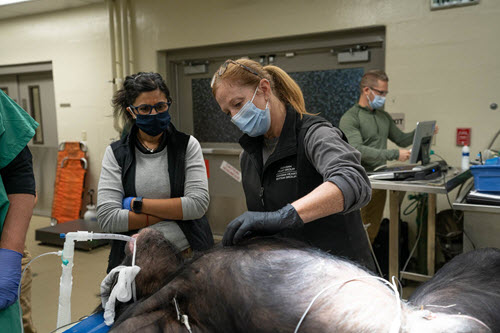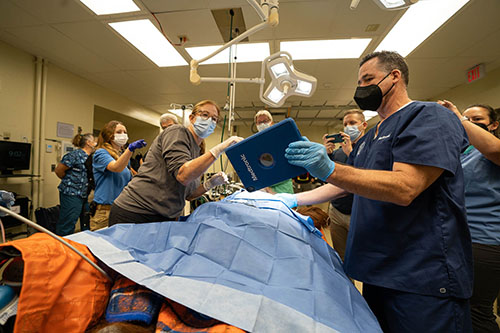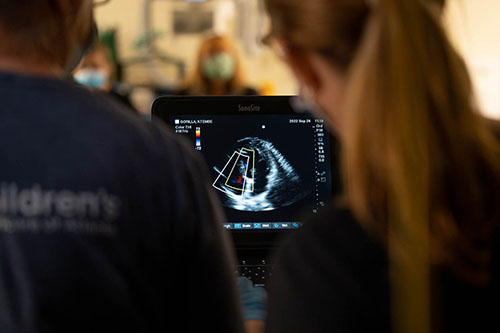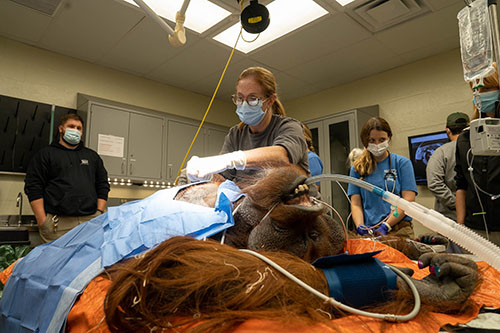Helping more than humans: Medtronic devices monitor heart disease in great apes
Columbus Zoo and Aquarium implants six great apes with heart monitors
Medical devices designed to help humans can sometimes help other creatures too.

The Columbus Zoo and Aquarium in Ohio recently implanted six great apes with Medtronic Reveal LINQ™ insertable cardiac monitors (ICMs), to help identify and track heart problems in the animals.
“The hearts of great apes are very similar to human hearts,” said Dr. Ilana Kutinsky, a cardiologist and electrophysiologist who participated in the implants. “Great apes die from heart disease just like people do.”
Heart disease is the leading cause of death among apes living in zoos. The Columbus Zoo, in conjunction with the Great Ape Heart Project based in Detroit, implanted the monitors in two gorillas, two orangutans, and for the first time in the world, two bonobos.
Bonobos share more than 98% of the same DNA as humans. All six apes implanted with Reveal LINQ are experiencing symptoms of heart disease.

“These devices will provide the ability to monitor the apes in real time and adjust medications as needed, to make sure we’re providing the best care to these animals through all their years,” said Dr. Priya Bapodra-Villaverde, Columbus Zoo senior veterinarian. “Not only are these procedures a breakthrough for these six individual great apes, but the cardiac monitors will also provide critical knowledge to advance veterinary care for their species.”
Reveal LINQ is about one third the size of a AAA battery. Implanted under the skin, it can monitor a patient’s heart 24 hours a day, seven days a week, for several years. The system records heart activity and sends data to the patient’s doctor – or veterinarian – alerting them to any detected abnormal heart rhythms.

“The data we collect will be included in the world’s largest data base of cardiac health-related data in great apes,” said Dr. Marietta Danforth of the Great Ape Heart Project. “This information is on gorillas, orangutans, bonobos and chimpanzees worldwide amongst zoos, and allows us to look at trends over time.”
Medtronic is a long-time partner of the Great Ape Project and donated 40 ICMs to the effort. Similar procedures will take place at several more U.S. zoos in the coming months.
In addition to great apes, Reveal LINQ devices are helping monitor the hearts of gray and maned wolves, mountain lions, oryx, Svalbard reindeer, mule deer, jaguars and bears (“How healthcare technology is changing wildlife conservation.”).

In total, Medtronic has supported research in 20 different species to date with additional species planned in 2023.
“Our Mission, to alleviate pain, restore health and extend life, goes beyond creating medical devices to improve human life,” said Tim Laske, vice president of research in the Medtronic Cardiac Ablation Solutions Operating Unit. “Another part of our Mission is also to be good global citizens. This guides us towards helping take care of the planet and the species in it. We’re proud to be part of this effort.”
Related content
L00110062022

